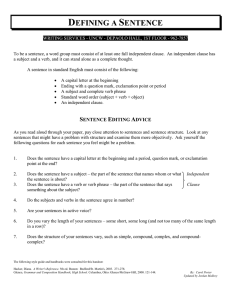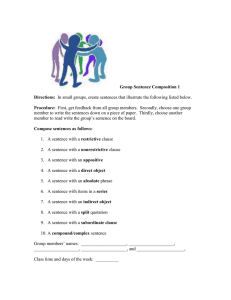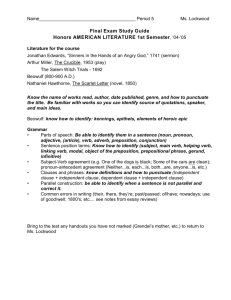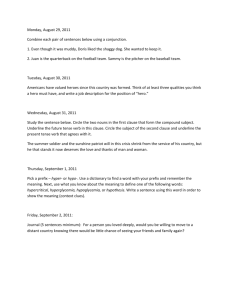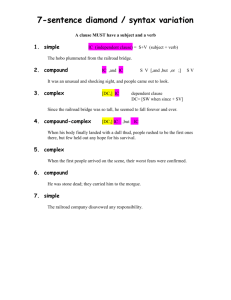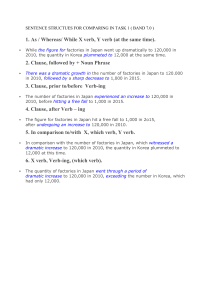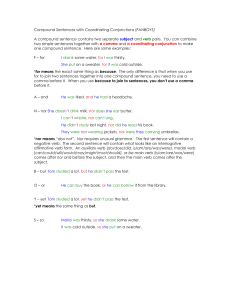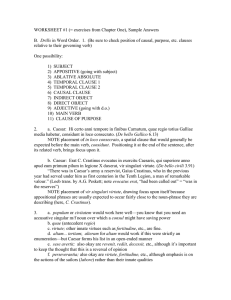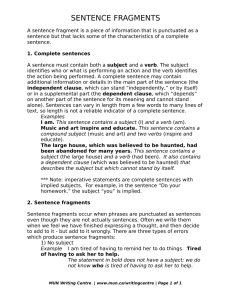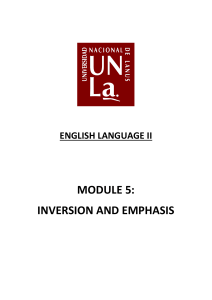Subject + Verb = Complete Thought
advertisement
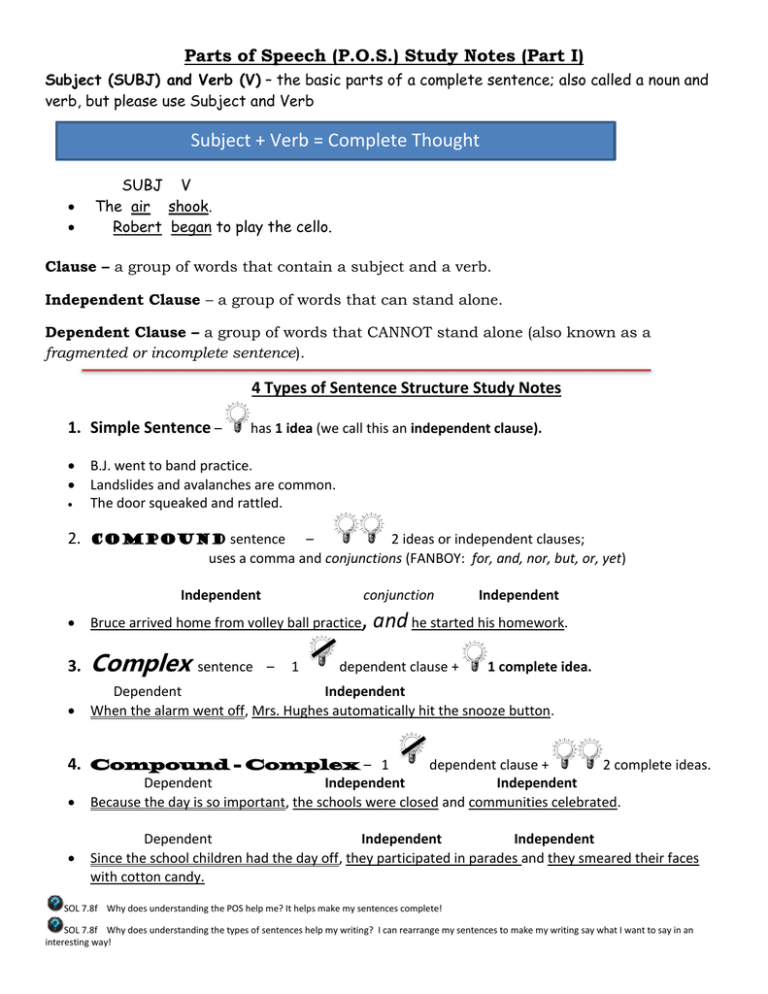
Parts of Speech (P.O.S.) Study Notes (Part I) Subject (SUBJ) and Verb (V) – the basic parts of a complete sentence; also called a noun and verb, but please use Subject and Verb Subject + Verb = Complete Thought SUBJ V The air shook. Robert began to play the cello. Clause – a group of words that contain a subject and a verb. Independent Clause – a group of words that can stand alone. Dependent Clause – a group of words that CANNOT stand alone (also known as a fragmented or incomplete sentence). 4 Types of Sentence Structure Study Notes 1. Simple Sentence – has 1 idea (we call this an independent clause). B.J. went to band practice. Landslides and avalanches are common. The door squeaked and rattled. 2. Compound sentence – 2 ideas or independent clauses; uses a comma and conjunctions (FANBOY: for, and, nor, but, or, yet) Independent conjunction Independent , and he started his homework. Bruce arrived home from volley ball practice 3. Complex sentence Dependent Independent When the alarm went off, Mrs. Hughes automatically hit the snooze button. – 1 dependent clause + 1 complete idea. 4. Compound - Complex – 1 dependent clause + 2 complete ideas. Dependent Independent Independent Because the day is so important, the schools were closed and communities celebrated. Dependent Independent Independent Since the school children had the day off, they participated in parades and they smeared their faces with cotton candy. SOL 7.8f Why does understanding the POS help me? It helps make my sentences complete! SOL 7.8f Why does understanding the types of sentences help my writing? I can rearrange my sentences to make my writing say what I want to say in an interesting way!
